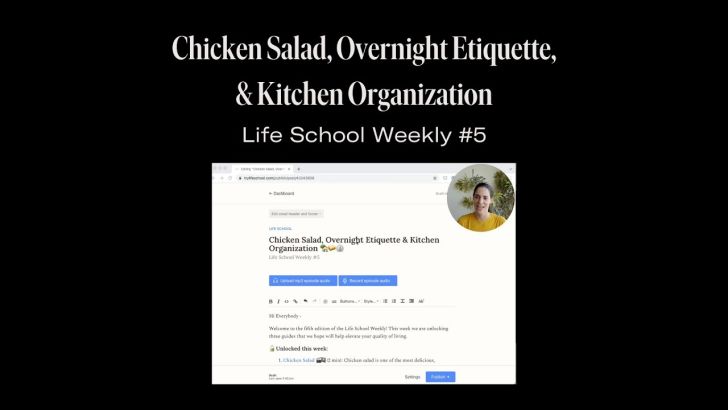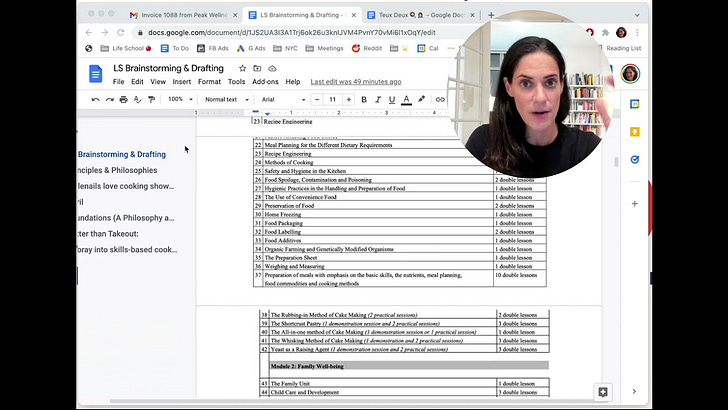Today’s lesson is 538 words, a 2 min 9 sec reading time. Subscribe here.
📍 Introduction:
If you prevent the mess in the first place, you’ll waste less time later cleaning up. Here are some tips and tricks for keeping your kitchen tidy while you cook up a storm.
📝 Notes, Tips & Tricks
Workstation:
Create a workstation: Keep all vegetable chopping, mixing, kneading, etc. in one place. Regularly clean it. Avoid mess elsewhere. Mark your territory!
Use a garbage or compost bowl: As you work, dump trimmings in a large bowl. This saves you from unnecessary trips to the trash can, which often leads to dropping things on the floor. They also help keep counter space clear. Alternatively, reuse a plastic bag that held the vegetable you are now chopping. It’s already going into the trash. Fill it with more trash!
Designate one cutting board for chopping vegetables (woodblock suggested) & another one for raw meats & onions (plastic recommended for easier washing & disinfecting). You can even place a flexible cutting mat *on top* of the cutting board to keep the workstation intact.
Work on top of large kitchen towels. They capture crumbs & splatters.
Never cut or prepare food directly on the counter. Counters can’t go in the dishwasher!
Reducing Dishes:
Re-use bowls & tools when possible: If a bowl or measuring cup might be useful later, give it a quick rinse or swirl a dish towel over it & leave by your workspace. For liquids, use the same pyrex measuring cup for all ingredients in sequence. For baking, use a digital scale & tare to zero after each addition.
Use easily cleanable items when possible (e.g., silicon spatulas, nonstick for eggs/vegetables). Avoid hard-to-clean items (e.g., garlic presses, large appliances).
Batch activities to reduce the frequency of cleaning. Wash all vegetables at once, cook potatoes for the week in one go, etc.
Keep extra messy items away from cleaner ones. For example, if you have a saucepan filled with gunk, don’t put it in the sink with your lightly used mixing bowls. It will spread the mess & make everything else harder to clean.
Use parchment paper on baking sheets & casserole dishes. They prevent sticking without requiring oil & even sometimes help you avoid washing altogether.
Protection from Spills & Splashes:
Cover bubbling pots & pans with lids: Splattered oil is tough to clean up.
Pour, measure, spray, & scoop over the sink: Powder, flour, & oil are particularly hard to clean up. Make a habit of keeping them away from countertops to save unnecessary wiping. You can also spray cooking spray over an open dishwasher.
Place a sheet pan/tray under baking items to catch messes (e.g., bubbling lasagna)
Slow down. If you are doing too much at once, your technique will get worse, leading to spills & splatters. Additionally, you will have less time to clean as you go!
Give yourself cushion time. When preparing to cook, assume an additional ~20% cooking time. This will make you feel more relaxed, & if you finish early, you can always find ways to spend the extra minutes. Try to prep a bit before you start cooking (e.g., put ingredients at workstation, finish washing & chopping before turning on the stove). This reduces that frantic feeling of having too much to do at once.










